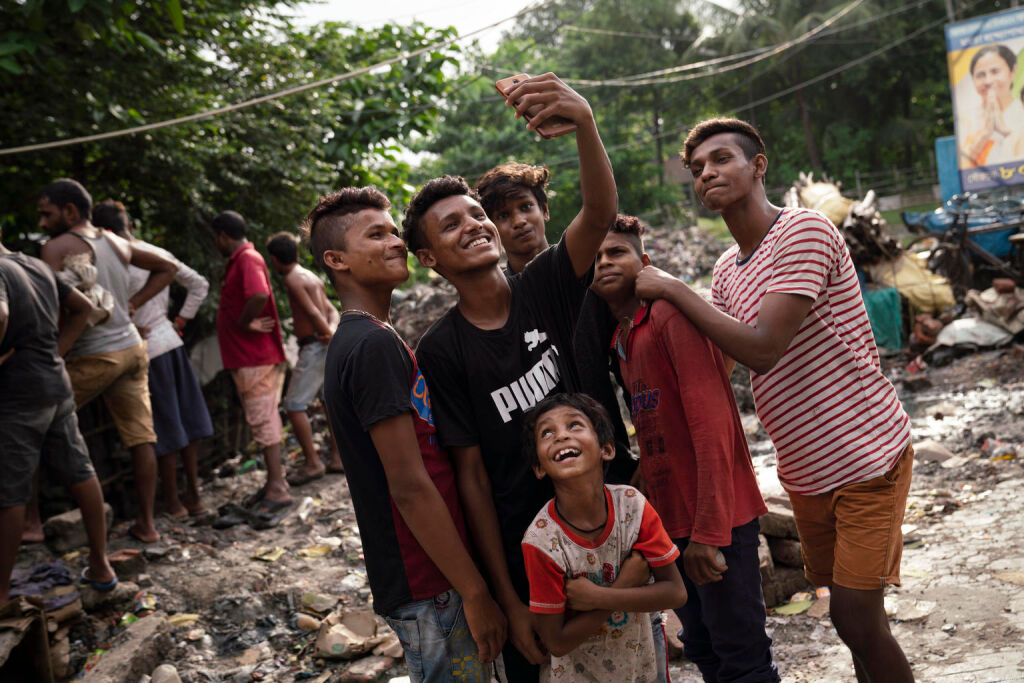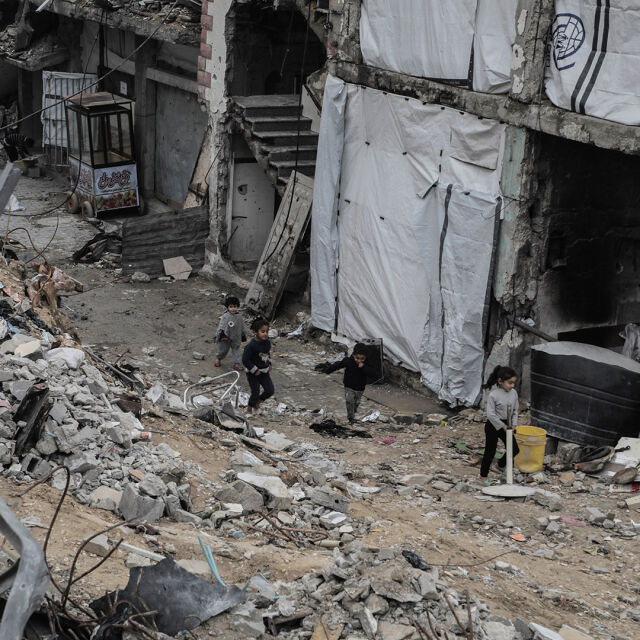Eva Ahlströmin säätiön tuella autetaan jopa kymmeniä tuhansia lapsia UNICEFin lastensuojeluhankkeessa Intiassa
Eva Ahlströmin säätiön ulkomailla asuvat perheenjäsenet sijoittavat seuraavan kolmen vuoden aikana lähes 400 000 euroa UNICEFin lastensuojeluhankkeeseen Intian Länsi-Bengalissa. Tavoitteena on kehittää alueen lastensuojelupalveluja ja vahvistaa paikallisten lastensuojelun työntekijöiden ammattitaitoa.

Hankkeen aikana parannetaan lastenkotien laatua, perustetaan turvakoteja ja tuetaan sijaisperhejärjestelyjä, jotta mahdollisimman moni lapsi voisi kasvaa ja kehittyä kodinomaisessa ympäristössä laitosympäristön sijaan.
Hankkeen piirissä on tuhansia laitoksissa asuvia lapsia, ja sen tuomat hyödyt tulevat auttamaan jopa kymmeniä tuhansia intialaislapsia.
Tavoitteena on, että hankkeen päättyessä vuonna 2022 Länsi-Bengalin osavaltio on parantanut ennaltaehkäisevien palvelujen laatua ja saatavuutta lapsille, jotka ovat vaarassa joutua hylätyksi tai muuten eroon perheistään.
Säätiö tukenut UNICEFia
jo vuodesta 2011
– Lasten suojeluun investoimalla autamme lapsia pääsemään irti köyhyyden tuomasta osattomuudesta, hyväksikäytöstä ja kaltoinkohtelusta. Iloitsen siitä, että UNICEFin pitkäjänteinen toiminta ja yhteistyö viranomaisten kanssa mahdollistaa hankkeen hyötyjen skaalautumisen koskemaan niin isoa lapsimäärää Kolkatan kaupungin ja muun Länsi-Bengalin alueella, kertoo Eva Ahlström Foundation Internationalin* ohjausryhmän puheenjohtaja Anne Canepa.
– Tuntuu hienolta luoda jotain uutta ja merkityksellistä perhearvojemme ja perintömme pohjalta. Uskomme vahvasti, että pystymme yhdessä perheenä vaikuttamaan ja muuttamaan maailmaa. Lastensuojelutyö on mielestämme hyvin merkittävässä roolissa vakaiden tulevaisuuden yhteiskuntien rakentamisessa. Kokemuksemme mukaan UNICEF on organisaatio, joka tehokkaasti pystyy saamaan aikaan pysyviä muutoksia lasten hyväksi, sanoo Eva Ahlströmin säätiön puheenjohtaja Maria Bondestam.
Eva Ahlströmin säätiö on tukenut UNICEFin työtä maailman lasten hyväksi jo vuodesta 2011. Tällä hetkellä säätiö tukee Sambiassa lastensuojeluohjelmaa. Tämän lisäksi säätiö on mukana viiden perheen perustamassa BF&HAPPY-hankkeessa Ruandan äiti- ja lapsikuolleisuuden vähentämiseksi.
Intiassa 20 miljoonaa orpoa
tai vanhempiensa hylkäämää lasta
Intiassa on tällä hetkellä noin 20 miljoonaa orpolasta, joista vain alle prosentti on menettänyt molemmat vanhempansa. Valtaosa on joutunut vanhempiensa hylkäämiksi, kadonnut tai pelastettu äärimmäisen vaikeista tilanteista, kuten ihmiskaupalta, hyväksikäytöltä tai rikollisuudelta. Lasten kohtaloiden taustalla on äärimmäistä köyhyyttä, päihteiden väärinkäyttöä, kaltoinkohtelua ja terveyskysymyksiä. Näillä lapsilla on vain vähän mahdollisuuksia kasvaa ja kehittyä täyteen potentiaaliinsa.
Lisätietoja:
Nina Vähäpassi, yritysyhteistyöpäällikkö, Suomen UNICEF ry
050 505 6467, [email protected]
*Eva Ahlström Foundation International on Ahlströmin suvun ulkomailla asuvien jäsenten perustama ryhmä.
The Eva Ahlström Foundation’s Support for UNICEF Child Protection Project Will Benefit Tens of Thousands of Children in India
In English:
The Eva Ahlström Foundation’s Support for UNICEF Child Protection Project Will Benefit Tens of Thousands of Children in India
Family members of the Ahlström family living outside Finland will invest nearly € 400,000 over the next three years in UNICEF Child Protection project in West Bengal, India via Eva Ahlström Foundation International. The aim is to develop child protection services in the area and strengthen the skills of local child welfare workers.
The Child protection project in West Bengal will improve the conditions and services of orphanages and childcare institutions, establish shelters and support foster family arrangements so that as many children as possible could grow and develop in a home-based environment rather than institutional settings.
The project will affect the lives of thousands of children living in institutions and benefit up to tens of thousands of Indian children.
The goal is to ensure that by the end of the project, in 2022, the state of West Bengal will have improved the quality and availability of preventive services for children at risk of being abandoned or otherwise separated from their families.
Foundation has been supporting
UNICEF since 2011
“By investing in child protection, we are helping children get out of poverty and protect them from exploitation and abuse. I am delighted that the long-term work of UNICEF and the cooperation with the local authorities will allow the benefits of the project to be scaled up to such a large number of children in Kolkata city and the rest of West Bengal,” says Anne Canepa, chairman of the Eva Ahlström Foundation International’s steering committee, the subgroup formed by the Ahlström family members living outside Finland.
“Creating something new from existing family values and heritage is a powerful thing. We genuinely feel that we as a family can make a difference and see child protection as fundamental and essential work that must be done right for there to be stable societies in the future. Our experience is that UNICEF is the organisation that can get this done effectively,” says Maria Bondestam, Chairman of the Eva Ahlström Foundation.
The Eva Ahlström Foundation has, through its partnership with UNICEF Finland, supported UNICEF’s work for children around the world since 2011. Currently, the foundation supports child protection program in Zambia. In addition, the foundation is part of a five-family BF&HAPPY project the aim of which is to reduce maternal and child mortality in Rwanda.
In India, 20 million children are orphaned
or abandoned by their parents
There are currently about 20 million orphans in India, of which only less than 1 % have lost both parents. Most have been abandoned by their parents, lost or rescued from extremely difficult situations, such as human trafficking, exploitation or crime. The fate of these children is the result of extreme poverty, substance abuse, maltreatment and health problems. They have little opportunity to grow and develop to their full potential.
Photo: Boys in West Bengal August 2019. UNICEF helps boys meet in groups to discuss their personal issues as well as mixed groups where they are taught to understand social and emotional changes, as well as how to deal with them.
Photo credit: ©UNICEF UNI213183 Narain 2019


